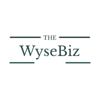What is Online Compliance Training and Why It May Be Beneficial to Your Organization There is one...
Top Tips for Acing Your Compliance Interview
Discover effective strategies to excel in your compliance interview and secure your dream job in the field.

Understanding the Importance of Compliance Interviews
Compliance interviews are a crucial step in the hiring process for any compliance-related job. These interviews are designed to assess your knowledge, skills, and abilities in the field of compliance. Employers want to ensure that you have a solid understanding of the rules, regulations, and ethical standards that govern the industry. Compliance interviews help employers identify candidates who can effectively navigate the complex compliance landscape and uphold the organization's integrity.
During a compliance interview, you may be asked questions about your understanding of regulatory frameworks, your previous experience in compliance-related roles, and your ability to identify and mitigate compliance risks. It is essential to demonstrate your knowledge and expertise in these areas to impress the interviewers and showcase your suitability for the position.
Preparing for Your Compliance Interview
To ace your compliance interview, thorough preparation is key. Start by researching the company and its industry to gain insights into their compliance requirements and challenges. Familiarize yourself with the relevant laws, regulations, and industry best practices. This will enable you to speak confidently about compliance issues during the interview.
Additionally, review your resume and identify specific examples from your previous work experience that demonstrate your compliance skills and achievements. Prepare concise and compelling stories that highlight your ability to handle compliance challenges and make ethical decisions.
Furthermore, practice answering common compliance interview questions, such as scenarios involving conflicts of interest, whistleblowing, or data privacy breaches. By rehearsing your responses, you will feel more confident and articulate during the actual interview.
Highlighting Your Relevant Skills and Experience
During your compliance interview, it's crucial to effectively communicate your relevant skills and experience. Start by emphasizing your understanding of the regulatory landscape and your ability to interpret and apply complex regulations to real-world scenarios. Showcase your experience in developing and implementing compliance programs, conducting risk assessments, and providing training to employees.
Highlight any certifications or professional qualifications you possess, such as Certified Compliance and Ethics Professional (CCEP) or Certified Regulatory Compliance Manager (CRCM). These certifications demonstrate your commitment to professional development and your credibility in the compliance field.
Furthermore, emphasize your strong attention to detail, analytical skills, and ability to think critically when assessing compliance risks. Employers value individuals who can identify potential issues proactively and propose effective solutions to mitigate them.
Answering Common Compliance Interview Questions
During your compliance interview, you are likely to encounter common questions that assess your knowledge, problem-solving skills, and ethical judgment. It's important to prepare thoughtful and concise responses to these questions.
Some common compliance interview questions include:
1. How do you stay updated on the latest regulatory changes?
2. Can you provide an example of a compliance issue you faced in your previous role and how you resolved it?
3. How would you handle a situation where you suspect a colleague is violating compliance policies?
When answering these questions, be specific and provide concrete examples from your past experiences. Demonstrate your ability to handle challenging situations ethically and in accordance with regulatory requirements.
Demonstrating Your Ethical and Legal Knowledge
Ethical and legal knowledge is a fundamental requirement for any compliance professional. During your compliance interview, it's essential to showcase your understanding of ethical principles and your ability to apply them in real-world scenarios.
Demonstrate your familiarity with key ethical frameworks, such as the International Federation of Accountants (IFAC) Code of Ethics or the Society of Corporate Compliance and Ethics (SCCE) Code of Conduct. Discuss how you incorporate these ethical principles into your decision-making process and how you promote a culture of ethics and compliance within an organization.
Moreover, highlight your knowledge of relevant laws and regulations, such as the Foreign Corrupt Practices Act (FCPA), the Health Insurance Portability and Accountability Act (HIPAA), or the General Data Protection Regulation (GDPR). Discuss how you ensure compliance with these regulations and how you stay updated on any changes or updates.
By demonstrating your ethical and legal knowledge, you will differentiate yourself as a candidate who not only understands the technical aspects of compliance but also values ethical conduct and integrity.



